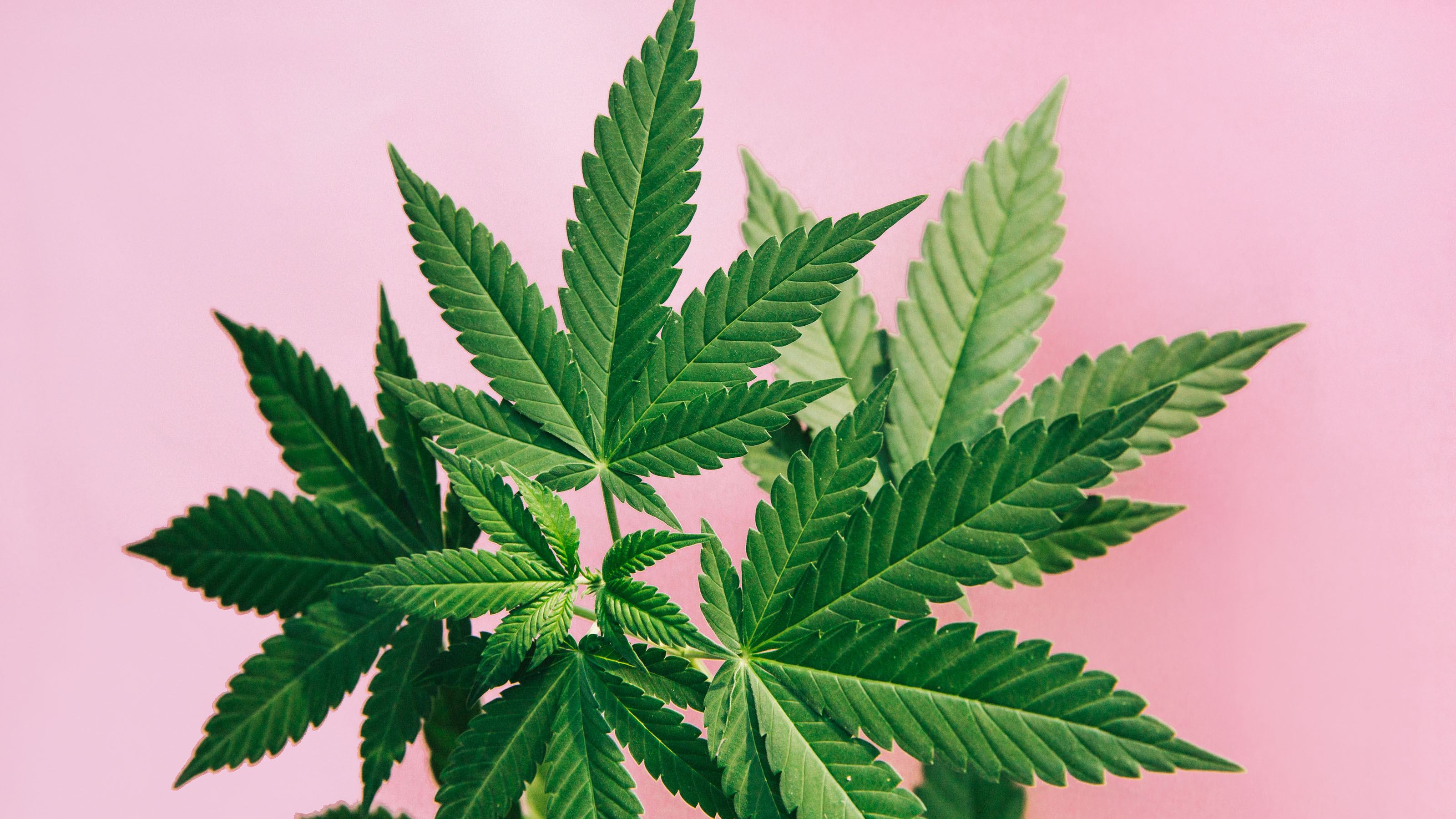TerrAscend Stock Now Trades on TSX: This Week in Cannabis Investing
TerrAscend stock is the first plant-touching cannabis company to be officially listed on the Toronto Stock Exchange.

Colin Ferrian

Profit and prosper with the best of Kiplinger's advice on investing, taxes, retirement, personal finance and much more. Delivered daily. Enter your email in the box and click Sign Me Up.
You are now subscribed
Your newsletter sign-up was successful
Want to add more newsletters?

Delivered daily
Kiplinger Today
Profit and prosper with the best of Kiplinger's advice on investing, taxes, retirement, personal finance and much more delivered daily. Smart money moves start here.

Sent five days a week
Kiplinger A Step Ahead
Get practical help to make better financial decisions in your everyday life, from spending to savings on top deals.

Delivered daily
Kiplinger Closing Bell
Get today's biggest financial and investing headlines delivered to your inbox every day the U.S. stock market is open.

Sent twice a week
Kiplinger Adviser Intel
Financial pros across the country share best practices and fresh tactics to preserve and grow your wealth.

Delivered weekly
Kiplinger Tax Tips
Trim your federal and state tax bills with practical tax-planning and tax-cutting strategies.

Sent twice a week
Kiplinger Retirement Tips
Your twice-a-week guide to planning and enjoying a financially secure and richly rewarding retirement

Sent bimonthly.
Kiplinger Adviser Angle
Insights for advisers, wealth managers and other financial professionals.

Sent twice a week
Kiplinger Investing Weekly
Your twice-a-week roundup of promising stocks, funds, companies and industries you should consider, ones you should avoid, and why.

Sent weekly for six weeks
Kiplinger Invest for Retirement
Your step-by-step six-part series on how to invest for retirement, from devising a successful strategy to exactly which investments to choose.
Progress in the legal cannabis industry can materialize in a variety of ways. Sometimes, progress is achieved through several small victories. In other instances, progress is achieved through a singular, large-scale advancement. Recently, TerrAscend (TSNDF) became one public company that has taken both routes to achieve success.
Throughout the last year, TerrAscend has taken steps to improve its operational and structural capabilities. More recently, TerrAscend became the first U.S. plant-touching cannabis company to be officially listed on a Tier-1 exchange on the Toronto Stock Exchange (TSX).
"Today is an incredible day for TerrAscend and our stakeholders," said Jason Wild, executive chairman of TerrAscend, in the company's press release. "We believe our TSX listing will provide the Company greater access to a broader group of institutional and retail investors looking for attractive opportunities in the cannabis space."
From just $107.88 $24.99 for Kiplinger Personal Finance
Become a smarter, better informed investor. Subscribe from just $107.88 $24.99, plus get up to 4 Special Issues

Sign up for Kiplinger’s Free Newsletters
Profit and prosper with the best of expert advice on investing, taxes, retirement, personal finance and more - straight to your e-mail.
Profit and prosper with the best of expert advice - straight to your e-mail.
The marijuana stock has only been trading on the TSX for a few weeks, but we are starting to see the value of this move as they are gaining more institutional and retail access than their cohort.
TerrAscend, like any other TSX-listed security, can be traded through Morgan Stanley investor platforms. Uplisting to a Tier-1 stock exchange can also provide better access to capital, improved credibility and greater liquidity. Increasing liquidity for publicly traded multi-state operators is needed now more than ever within this evolving industry. With this achievement, TerrAscend is certainly leading the way with increasing access.
Label shopping could be coming to an end
The legal cannabis industry has balanced the actions of good and bad actors throughout the last decade. Good actors work hard to establish a legitimate, accountable infrastructure that customers and regulators can trust. Meanwhile, bad actors within the illicit market often claim to be operating legally while engaging in nefarious practices. Positive figures within the legal cannabis industry have overcome several challenges, but there is still plenty of work to do in markets around the country, including California.
Labeling fraud in the form of inflated THC numbers has been an issue within the cannabis market for years. California law firm Dovel & Luner has undertaken six cases that challenge the bad actors who engage in this activity and earned a significant victory on a demurrer motion in June. A judge ruled that the makers of a popular product line couldn't solely place the blame of a label with inaccurate THC percentages on the testing lab.
"Defendants are not immune from liability simply because they parroted third-party misrepresentations," the judge in the case wrote.
This recent decision could also impact another long-term issue within the industry – label shopping. The practice of label shopping consists of brands dependent on high-THC numbers bouncing from testing lab to testing lab in hopes of getting the highest THC results.
Label shopping is reminiscent of the "rating shops" that contributed to the Great Financial Crisis in many ways. The rating agencies received payments to provide ratings on bonds and became less inclined to rate low-quality bonds accurately in fear of losing future revenue. Testing labs are behaving similarly in this instance – post higher THC results to get more business. Thankfully, it seems that the label shopping game may finally be coming to an end.
It will take time to work this issue out entirely, but this is a step in the right direction for good actors across the industry. At Poseidon, we have tried to bolster the good as partners and capital providers and will continue to do so.
U.S. cannabis wholesale prices stabilize
Another form of progress for the cannabis industry is the rationalization of supply, or rather, farmers reacting to wholesale pricing for capacity planning of their crops. Now, overproduction and surplus has been a key theme for agriculture, even specialty crops like grapes, for at least a century, but the emergence of data in the 21st century has generally muted the peaks and troughs.
Cannabis would be inevitably predisposed to the same temptations of margin capture as our row crop farmers due the allure of high prices, unknown addressable markets and limited datasets to monitor supply from peers. As a result, almost every adult-use market has seen meaningful wholesale price declines due to overproduction.
Due to capital scarcity and troughing spot prices, we believe there may be an end in sight. A recent report from wholesale pricing data firm Cannabis Benchmarks reflects a country-wide stabilization for pricing, with forecasts for 2023 pricing 5.7% higher than the year prior.
This is a theme that we at Poseidon monitor closely because of the impact it has on every business in the industry. By leveraging state regulatory data, we have found similar insights.
For instance, in Michigan, the second largest cannabis market in the country by sales, crop capacity has slowed to merely 15% the growth rate of the past two-year average. This has caused utilization, or plants being grown relative to the maximum potential allowed, to be 10% higher than the same period in the past two-year average.
The state is on track to hit new highs in utilization this summer, and this has resulted in a stabilization of prices for the top three product categories, a trend that hasn't occurred since the program started in 2019. Most importantly, the volume of purchases by consumers have continued to grow, and sales are up 34% year-to-date.
In California, the largest market in the country, crop capacity is down 21% year-to-date, according to Mike Regan at Excelsior Equities, and spot prices are up 20%, according to Cannabis Benchmarks.
Near term, prices should continue to fade as the new capacity across many markets adds incremental supply, but because of the slowed rate of additional capacity, this decline will be at a lower magnitude than the industry has seen in past years.
Longer term, capital expenditures are a promising indicator of sustained price stability. The 10 largest publicly traded cannabis operators have guided to decrease spending 53.6% year-over-year in 2023, after a 21.5% decline in 2022. In the private markets, interest in funding new capacity is even lower, so while not an immediate event, stabilization of prices across the cannabis market is coming.
GOP lawmakers weigh in on banning
We are not believers in banning over a path of regulation and tax when it comes to matters such as cannabis. Anyone looking objectively and not with a stigma agrees that the war on drugs has been a complete failure, destroying lives and wasting incredible amounts of time and resources.
Politics certainly come into play here, especially when we have a very aged demographic of elected officials. And we understand that not everyone has to be a supporter of legalizing cannabis, but the better politicians separate their bias from representing the will of the people. We see how politicians will contradict themselves in certain pursuits that may open other doors that they didn't intend to open.
We thought it was amazing this week when several Republican senators noted that banning, as it relates to nicotine products, has perverse impacts. Further, there was recognition that legalizing cannabis has been a productive path to reducing cartel activity.
So if banning doesn't work, and legalization has been a benefit to society by reducing illegal market activity, then what is the hold up on federal reform around cannabis? We have been hearing a lot of posturing and grandstanding over the last ten years with no federal progress. The American people deserve better.
Related content
Profit and prosper with the best of Kiplinger's advice on investing, taxes, retirement, personal finance and much more. Delivered daily. Enter your email in the box and click Sign Me Up.

Morgan Paxhia is Managing Director and Co-Founder of Poseidon Investment Management. With over 10 years experience in investing and finance, Morgan has developed a deep understanding of individual company analysis, portfolio construction, and risk mitigation. This content is not intended to provide any investment, financial, legal, regulatory, accounting, tax or similar advice, and nothing should be construed as a recommendation by Poseidon Investment Management, LLC, its affiliates, or any third party, to acquire or dispose of any investment or security, or to engage in any investment strategy or transaction. An investment in any strategy involves a high degree of risk and there is always the possibility of loss, including the loss of principal. This content should not be considered as an offer or solicitation to purchase or sell securities or other services. Any of the securities identified and described herein are for illustrative purposes only. Their selection was based upon nonperformance-based objective criteria. The content presented is believed to be factual and up-to-date, but we do not guarantee its accuracy and it should not be regarded as a complete analysis of the subjects discussed. Past performance is not indicative of future results.
- Colin FerrianContributing Writer
-
 Nasdaq Leads a Rocky Risk-On Rally: Stock Market Today
Nasdaq Leads a Rocky Risk-On Rally: Stock Market TodayAnother worrying bout of late-session weakness couldn't take down the main equity indexes on Wednesday.
-
 Quiz: Do You Know How to Avoid the "Medigap Trap?"
Quiz: Do You Know How to Avoid the "Medigap Trap?"Quiz Test your basic knowledge of the "Medigap Trap" in our quick quiz.
-
 5 Top Tax-Efficient Mutual Funds for Smarter Investing
5 Top Tax-Efficient Mutual Funds for Smarter InvestingMutual funds are many things, but "tax-friendly" usually isn't one of them. These are the exceptions.